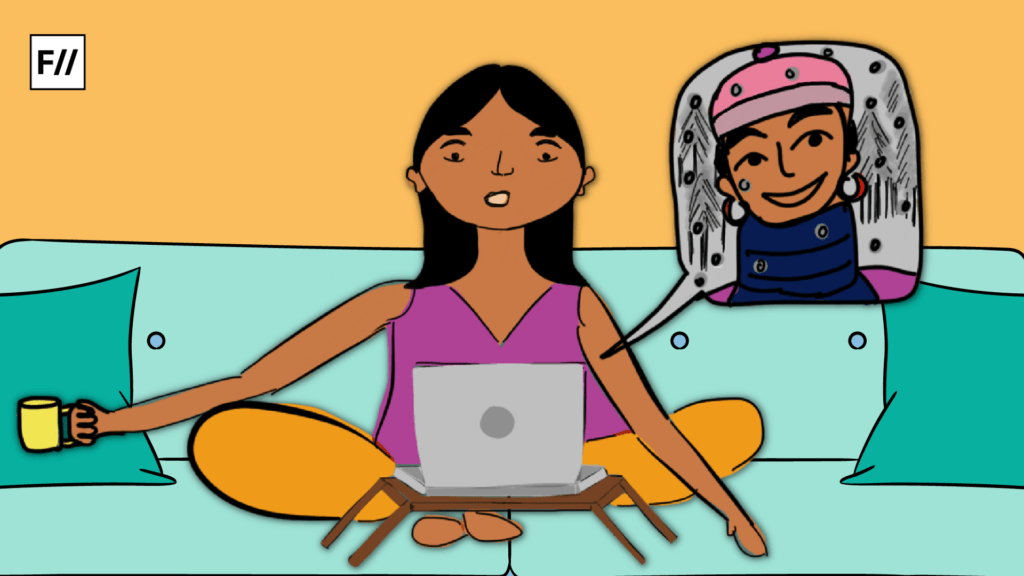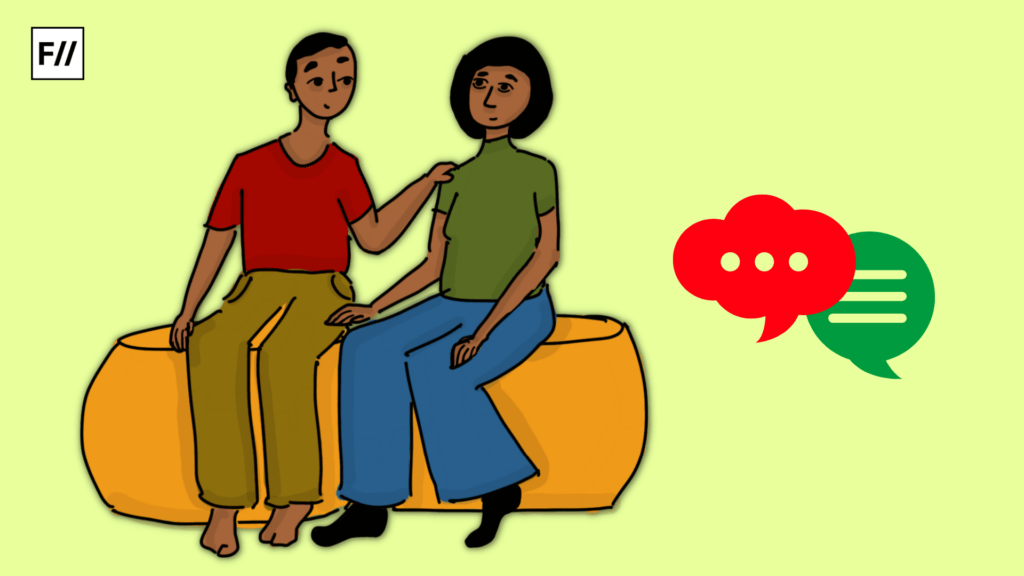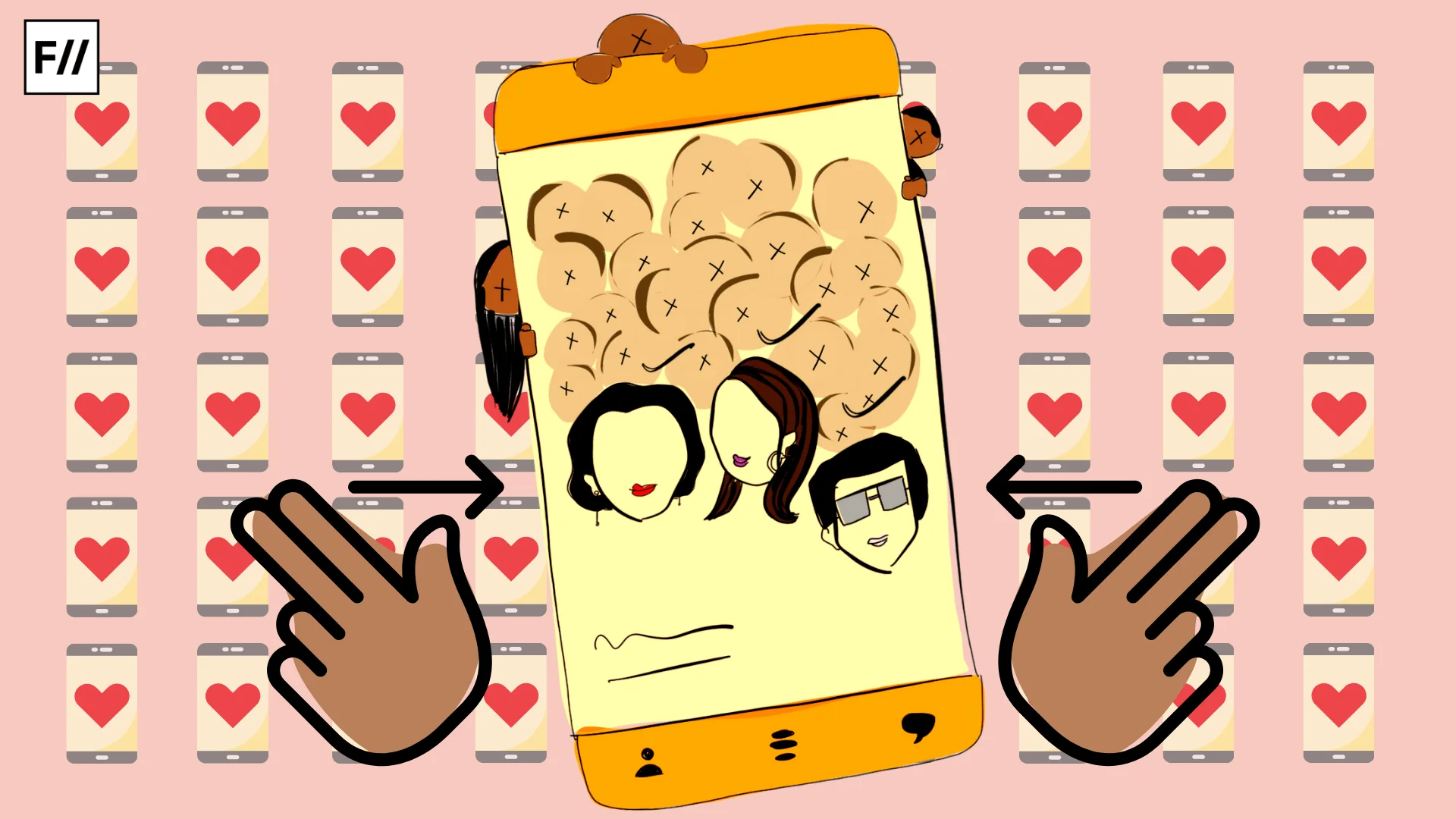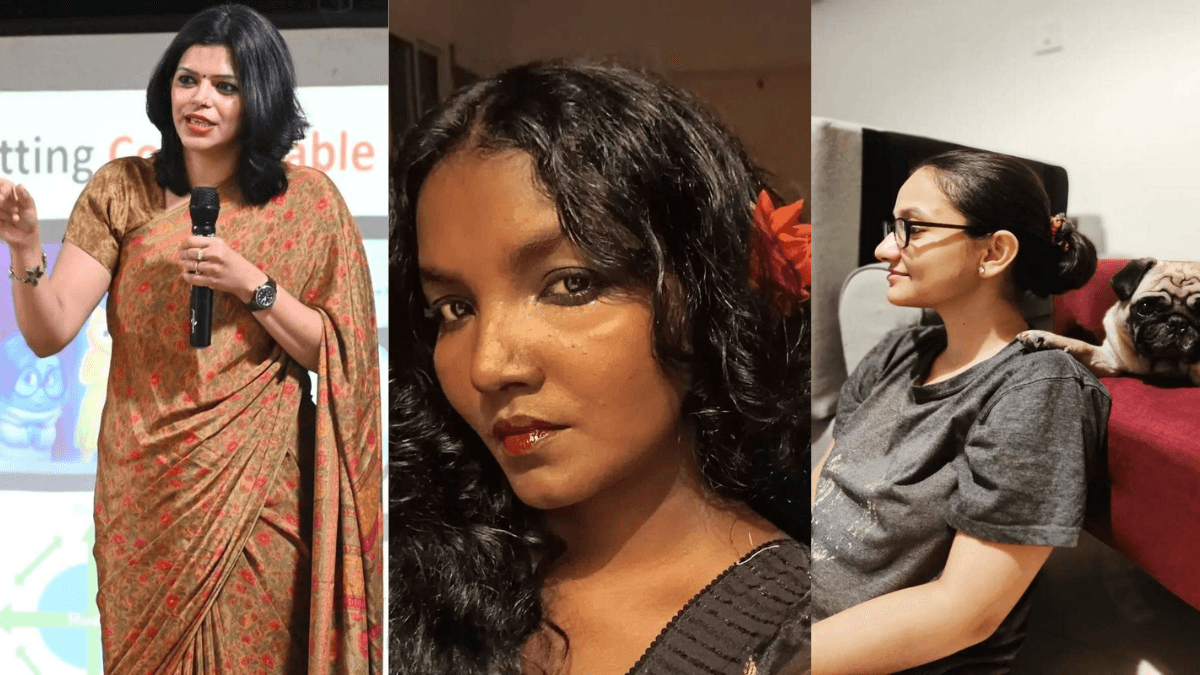Are we meeting Jane Austen’s standards for romance in today’s time? For the current generation, relationships are no longer the delicate terrain they once were. These days, online activities commonly signify the start and end of love and relationships. The focus is entirely on posting on social media on special occasions like birthdays and anniversaries, or sometimes even just randomly.
Before social media, love was expressed differently: by writing notes on the back of notebooks and passing them around the classroom, by using two phone rings as a Morse code to meet at the terrace, by saving a seat on the school bus, singing songs for them on annual function, and, most importantly, by waiting patiently, loving truthfully, and showing a great deal of respect.
The expression and communication of love went through a significant transformation due to social media. Positive aspects of social media use involve having a community, allowing people to interact with one another across distances, and sharing special events and memories through pictures.
Yet, it can also result in negative experiences, in particular for couples: excessive sharing, a need for likes and attention, jealousy between partners, infidelity with others, and an attempt to control what their partner can and cannot post.
Seeking validation
Whether long-distance or not, we have all become upset with our partners for doing something without notifying us—especially sharing photos or stories on social media. In Little Things Season 3, when Kavya asks Dhruv “why he posted a story on Instagram without sending her first,” during their long-distance relationship phase, we come to feel the insecurity and aloofness she feels from her partner.
Respecting and validating a partner’s ideas, emotions, and behaviours is an essential part of happy and loving relationships. However, a history of invalidation in a relationship may result in the exact opposite, which is self-doubt, resentment, and bitterness.

It was discovered that individuals in long-distance relationships used social media regularly, communicated with their partners directly more often, and believed that social media validated their relationships. The lack of in-person interaction can be made up for in long-distance relationships by social media platforms, which may offer a successful way to sustain and nurture them.
Nonetheless, whether a couple was living together or separated by distance, the use of social media had little impact on maintaining a happy relationship. Furthermore, using social media to lessen conflict did not prove to be successful either. Regular use of social media could lead to a greater possibility of misinterpreting intentions or starting conflicts.
To post or to not post
In 2020, Krueger and Forest conducted a study which revealed that individuals who shared their relationships on the internet felt a closer bond with their partner. Some people firmly believe that by expressing love through social media people show the world how significant a person is to them.

P* 26, who has been in a long-distance relationship for 4 years stated that she enjoys it when her partner accepts her in public, posts pictures on social media and isn’t interested in keeping their relationship a secret which also boosts her confidence and commitment.
Every year on N’s* birthday, S* shares a picture of the two of them along with a 500-word essay caption expressing their love as N is seated next to them because the love won’t seem real until it is shared on social media and bombarded by flying hearts from friends and mostly strangers.
A study found that people see social media as an essential platform for expressing their love and affection. This is particularly valid for younger users who are in relationships between the ages of 18 and 29, using social media to express their partner’s importance to them is both extremely and somewhat important.
When R* and A* first started dating, she would post on social media after every date, and R assumed A would follow suit but he never did. However, A tend to share photos of their cousins and friends on social media. Upon inquiring as to why, they never feel like sharing about their relationship on social media, A reasoned.
For R, the explanation seemed more like an excuse and a sign of indifference; she believed the other people he posted about were of greater importance than her. They frequently got into conflicts as a result of A’s reluctance to post on social media. ‘Would it be okay if I did something I’m not comfortable doing just to make you happy‘ asked A. At that point, R realised she would choose her partner’s comfort over every other thing, so she stopped caring about the social media hubbub.

It is common for people to see social media posts about a partner as a sign of commitment, interest, or love. That’s why when a partner doesn’t post about them, some would think the opposite is true. People approach social media from many angles. It might be significant and appealing to some, but it might be viewed as pretentious or an invasion of privacy by others.
According to a 2020 study, PDA on social media was more about declaring to the world that they were taken than it was about feeling close to their partners. The human mind most likely uses PDAs to convince itself that, despite the obstacles in life, everything about it is wonderful, including seeking validation.
Should one post their partner to make them feel loved and important despite their discomfort? Aren’t there other ways to make them feel so?
E for Efforts
When the whole Instagram world was making reels on ‘I wonder who will be my girlfriend/boyfriend when I grow up,’ V* felt left out. She also intended to share adorable photos of herself and her partner from their childhoods. Despite his rare social media activity, her partner delighted her by creating that reel for her. She loved that he put in the effort and learned how to create a reel.
Relationship problems are not new; rather, social media contributes to existing ones. It might be lovely when they post a cute picture with a cheesy caption and your favourite song but love has always been stored in the little things that we tend to overlook.
One doesn’t need to showcase their love, loyalty, efforts and appreciation for their partner on any social media when they can do with just a handwritten letter, a bouquet of sunflowers, an Elif Shafak book or a Shahrukh Khan film night.
*names have been withheld to protect identities






